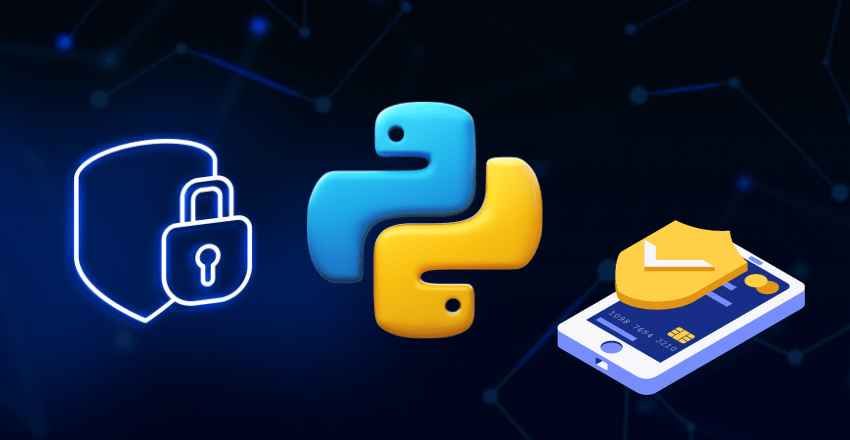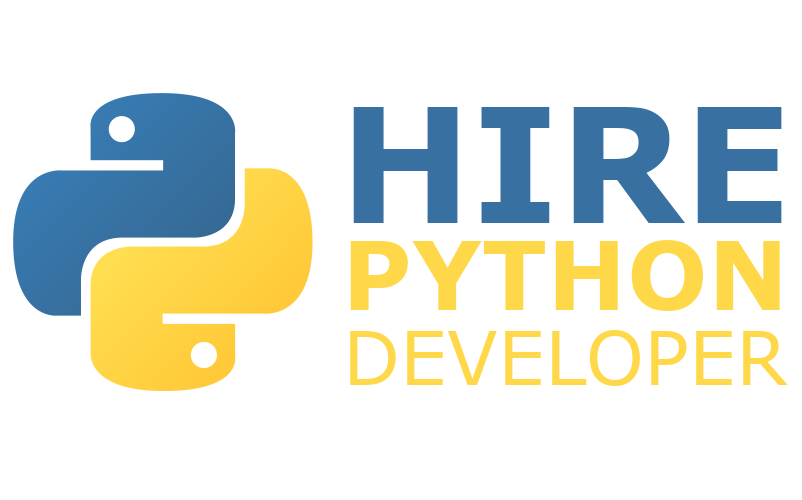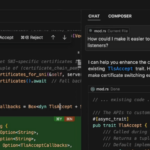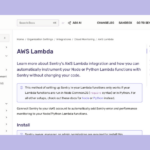 As businesses increasingly rely on software applications for their operations, it has become essential to ensure that these applications are both secure and reliable. This is where Python application security comes in.
As businesses increasingly rely on software applications for their operations, it has become essential to ensure that these applications are both secure and reliable. This is where Python application security comes in.
Ensuring software protection is a vital aspect of any business that deals with sensitive data, and Python application security is a key way to achieve this. By leveraging Python for secure application development, companies can reduce potential security risks and protect their intellectual property.
The Importance of Application Security
As businesses increasingly rely on software applications for operations and customer interactions, the need for strong security measures to protect these applications has never been greater. Python application security can ensure software protection and enhance the reliability and security of business applications.
Without proper application security measures, businesses can be vulnerable to a range of potential risks and vulnerabilities. Cyber attacks can compromise sensitive data, disrupt business operations, and damage reputation and customer trust. Ensuring software protection through Python application security is crucial in today’s digital landscape.
Understanding Python Application Security
Python is a widely used programming language with a focus on simplicity and efficiency. However, this simplicity can also pose security challenges. Python application security refers to the practice of ensuring that software applications developed using Python are protected against potential threats and vulnerabilities that may arise.
Expert Python application security goes beyond general security practices to address challenges specific to Python. These include issues related to the dynamic nature of Python, the use of third-party libraries, and its interpreted nature, which can make it difficult to detect certain vulnerabilities.
Ensuring secure Python application development requires a deep understanding of the language, its frameworks, and the latest security best practices. Expert Python application security involves implementing vulnerability assessments, penetration testing, and performing code reviews to identify potential security threats and take proactive measures to address them.
Partnering with an experienced and knowledgeable Python application security provider, like Hire Python Developer, can provide businesses with peace of mind that their applications are protected against potential threats.
Common Security Risks in Python Applications
When it comes to Python application security, there are various risks and vulnerabilities that businesses need to be aware of. These potential security threats can include:
- SQL Injection: Attackers may use SQL injection to access sensitive data stored in a database. This can be prevented by using prepared statements and parameterized queries.
- Cross-Site Scripting (XSS): Attackers can use XSS to inject malicious code into a web page that can steal user data or compromise the application. Proper input validation can help prevent XSS attacks.
- Broken Authentication and Session Management: These vulnerabilities can allow attackers to gain unauthorized access to user accounts and data. Secure authentication and session management practices can help prevent these risks.
- Unsecured APIs: APIs can be exploited by attackers to access sensitive data or perform unauthorized actions. Secure API design and authentication can help prevent these risks.
These are just a few examples of the potential security risks that businesses can face when using Python applications. It’s important to prioritize application security to protect against these potential threats.
Best Practices for Python Application Security

When it comes to Python application security, it is important to follow best practices in order to ensure your software is protected from potential threats. Hire Python Developer offers expert Python application security solutions for businesses looking to enhance the security and reliability of their applications.
Secure Coding Practices
One of the most important aspects of Python application security is writing secure code. This includes following best practices such as input validation, sanitization, and encryption of sensitive data. It is also important to avoid common security pitfalls such as SQL injection and cross-site scripting (XSS) attacks.
Secure Configuration
Properly configuring your Python environment is essential for ensuring the security of your applications. This includes implementing secure authentication and authorization mechanisms, as well as using secure communication protocols such as HTTPS.
Input Validation
Input validation is a critical component of Python application security, as it helps to prevent attacks such as SQL injection and XSS. It is important to validate all user input and ensure that only valid data is processed by your application.
Library and Framework Security
Using third-party libraries and frameworks can be an effective way to speed up development, but it is important to ensure that they are secure. This includes regularly updating to the latest version and monitoring for potential vulnerabilities.
Continuous Testing and Monitoring
Continuous testing and monitoring is essential for maintaining the security of Python applications. This includes regular penetration testing and vulnerability scanning to identify potential threats, as well as ongoing monitoring of system logs and activity.
By following these best practices and partnering with Hire Python Developer for expert Python application security solutions, businesses can ensure the reliability and security of their applications.
Leveraging Python for Secure Application Development

Python is an inherently secure programming language, offering various built-in security features that can help businesses in developing secure applications. It is an interpreted language that provides automatic memory management and includes sandbox mode execution for enhanced security.
Python’s security features, such as strong encryption libraries, secure hashing, and secure random number generators, make it an ideal choice for building secure applications. Additionally, Python’s support for third-party libraries and frameworks also offers an extensive range of pre-built tools and modules that can be used for application security.
Businesses can leverage Python for secure application development by employing secure coding practices, such as input validation, access control, and error handling. Using secure frameworks and libraries can also enhance the security of Python applications and reduce the risk of vulnerabilities.
Moreover, Python’s compatibility with various platforms and operating systems allows businesses to build applications that can run on multiple environments, providing flexibility and scalability. This feature also allows for easy maintenance and updating, ensuring the continued security of Python applications.
To leverage Python for secure application development, businesses can partner with Hire Python Developer, a team of expert Python developers who specialize in application security. With their extensive knowledge and experience in Python application security, Hire Python Developer can provide businesses with reliable and secure solutions for their application development needs.
The Role of Hire Python Developer in Application Security
When it comes to Python application security, it is crucial to partner with an expert team that can provide reliable solutions. Hire Python Developer offers a wealth of experience and expertise in ensuring maximum software protection for businesses.
With their in-depth knowledge of Python application security, the team at Hire Python Developer can identify potential vulnerabilities and mitigate risks before they cause harm to your business. They follow best practices for secure coding, secure configuration, input validation, and other essential measures to keep your applications safe from threats.
Outsourcing Python development to a dedicated team like Hire Python Developer also offers several advantages. You can save time and resources by relying on their expertise, while also ensuring ongoing security maintenance and updates for your applications.
The Advantages of Working with Hire Python Developer
Partnering with Hire Python Developer for your Python application security needs offers the following advantages:
- Expert Python application security
- Reliable and timely solutions
- Effective risk mitigation
- Dedicated team for ongoing security maintenance
- Cost-effective and efficient solutions
With Hire Python Developer, you can rest assured that your business applications are in safe hands. Their commitment to delivering secure and reliable solutions make them the ideal partner for any business looking to enhance their Python application security.
Building a Secure Python Development Team

Developing a secure Python application requires an experienced and dedicated team of developers with expertise in Python application security. Building such a team can be a challenging task, but it is essential to ensure the continued security and reliability of your business applications.
A dedicated Python development team should be focused on creating and maintaining secure applications. This team should consist of individuals with experience in Python and an understanding of application security best practices.
When building a team, it is important to consider the following:
- Experience in Python development and security
- Understanding of secure coding practices
- Ability to perform regular security assessments and updates
- Experience working with security frameworks and libraries
Outsourcing to Hire Python Developer
Outsourcing Python development to a reliable and experienced team like Hire Python Developer can be an excellent option for businesses looking to build a secure Python development team. Hire Python Developer has a team of expert developers with experience in Python application security, ensuring your applications remain secure and reliable.
Outsourcing to Hire Python Developer can also save businesses time and money, as they do not need to invest in hiring and training new developers. Additionally, Hire Python Developer can provide ongoing support and maintenance services, ensuring that your Python applications remain secure and up-to-date.
Implementing Python Application Security Measures
Implementing proper security measures is crucial in securing enterprise applications against potential threats and attacks. Python application security requires special attention to ensure full protection. Here are some practical tips to enhance the security of your Python applications:
- Implement secure coding practices: Developers must follow secure coding practices, such as input validation, output encoding, proper error handling, and avoiding hardcoded passwords and encryption keys. This helps prevent common attacks like SQL injection, cross-site scripting, and cross-site request forgery.
- Use security frameworks: Python provides various security frameworks like Django, Flask, and Pyramid, which offer built-in security features such as authentication, access control, and session management. These frameworks help reduce the burden of developing secure applications from scratch and ensure uniform security across different components of the application.
- Utilize security libraries: There are numerous third-party security libraries available for Python, such as bcrypt, scrypt, and cryptography, which provide support for secure password storage, encryption, and decryption. These libraries help in reducing the complexity of security implementation and ensure secure storage of sensitive data like user credentials, API keys, and payment information.
- Perform penetration testing: Penetration testing is a process that helps identify and address vulnerabilities in the application before they can be exploited by attackers. Hire Python Developer offers penetration testing services that can help businesses identify and mitigate potential security risks.
- Use automated security tools: Automated security tools such as static code analysis, vulnerability scanners, and intrusion detection systems can help detect and mitigate potential security threats. These tools can be integrated into the development pipeline to ensure continuous monitoring and security maintenance.
By following these best practices, businesses can ensure that their Python applications are secure and reliable, with minimal risks of potential threats and attacks.
Continuous Monitoring and Updates for Python Applications
Implementing adequate security measures is only the first step towards ensuring the reliability and security of your Python applications. Continuous monitoring and regular updates are essential to maintain the effectiveness of these measures, as new security threats can emerge at any time. It is vital to keep up with new developments in the field of Python application security and adapt your security practices accordingly.
Expert Python application security teams like Hire Python Developer offer ongoing support and maintenance services to help businesses stay on top of emerging threats. Their team of experienced developers and security experts can provide continuous monitoring of your Python applications, identifying potential vulnerabilities and addressing them before they can be exploited by attackers. Regular updates can also help to ensure that your Python applications remain secure against new threats.
Proactive security measures, such as regular security audits and vulnerability scanning, can further enhance the security of your Python applications. These measures can help identify potential threats and address them before they can cause damage to your business operations. Partnering with a dedicated Python development team can also help ensure ongoing security maintenance and updates, reducing the risk of security breaches.
By implementing a comprehensive security strategy that includes continuous monitoring and updates, businesses can ensure the reliable and secure operation of their Python applications. Hire Python Developer offers expert Python application security solutions and ongoing support, helping businesses to stay ahead of emerging threats and maintain the security of their applications.
The Conclusion: Secure and Reliable Python Applications
Python application security is critical for businesses looking to protect their software and data. By prioritizing application security measures, businesses can safeguard against potential attacks and minimize the damage caused by security breaches.
Partnering with expert Python developers, such as Hire Python Developer, can provide businesses with a comprehensive application security solution that ensures reliable and secure software. Hire Python Developer has extensive experience in Python application security, making them the ideal partner for businesses looking to enhance their security.
Don’t wait until it’s too late to prioritize your application security. Contact Hire Python Developer today to learn more about their expert Python application security solutions.
FAQ

Q: What is Python application security?
A: Python application security refers to the measures taken to protect Python-based software applications from potential threats and vulnerabilities. It involves implementing secure coding practices, secure configuration, input validation, and other essential measures to ensure the reliability and security of Python applications.
Q: Why is Python application security important?
A: Python application security is important because it helps businesses protect their applications from potential risks and vulnerabilities. Without proper application security measures in place, businesses can face potential data breaches, unauthorized access, and other security incidents that can have a significant impact on their operations and reputation.
Q: What are the common security risks in Python applications?
A: Common security risks in Python applications include code injection, insecure file handling, cross-site scripting (XSS), SQL injection, and insecure authentication and authorization mechanisms. These vulnerabilities can be exploited by attackers to gain unauthorized access, manipulate data, or disrupt business operations.
Q: What are the best practices for Python application security?
A: Best practices for Python application security include following secure coding practices, implementing secure configuration, applying input validation, using encryption and hashing techniques, keeping software libraries and frameworks up to date, and conducting regular security audits and penetration testing.
Q: How can Python be leveraged for secure application development?
A: Python can be leveraged for secure application development by taking advantage of its inherent security features and capabilities. Python offers built-in libraries and frameworks for secure coding, cryptography, secure networking, and more, making it a reliable choice for developing secure applications.
Q: How can businesses build a secure Python development team?
A: Building a secure Python development team involves hiring experienced developers with expertise in Python application security. It is essential to prioritize security in the hiring process and ensure that the team is well-versed in secure coding practices, threat modeling, secure configuration, and other security-related aspects of Python development.
Q: What are some practical tips for implementing Python application security measures?
A: Some practical tips for implementing Python application security measures include using security frameworks and libraries, conducting security code reviews, implementing proper access control mechanisms, ensuring secure data storage and transmission, and regularly updating software dependencies to address any known vulnerabilities.
Q: Why is continuous monitoring and regular updates important for Python applications?
A: Continuous monitoring and regular updates are important for Python applications to maintain their security over time. New vulnerabilities and threats can emerge, so it’s crucial to stay proactive and identify potential security issues promptly. Regular updates also ensure that software libraries, frameworks, and other components remain up to date, reducing the risk of known vulnerabilities.
Lydia is a seasoned technical author, well-versed in the intricacies of software development and a dedicated practitioner of Python. With a career spanning 16 years, Lydia has made significant contributions as a programmer and scrum master at renowned companies such as Thompsons, Deloit, and The GAP, where they have been instrumental in delivering successful projects.
A proud alumnus of Duke University, Lydia pursued a degree in Computer Science, solidifying their academic foundation. At Duke, they gained a comprehensive understanding of computer systems, algorithms, and programming languages, which paved the way for their career in the ever-evolving field of software development.
As a technical author, Lydia remains committed to fostering knowledge sharing and promoting the growth of the computer science community. Their dedication to Python development, coupled with their expertise as a programmer and scrum master, positions them as a trusted source of guidance and insight. Through their publications and engagements, Lydia continues to inspire and empower fellow technologists, leaving an indelible mark on the world of scientific computer science.







